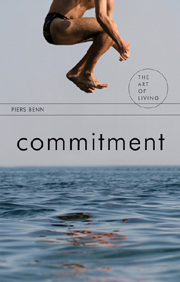2 - Love
Summary
I have suggested that our deepest commitments are those rooted in love. But there is, of course, much to enquire about in this suggestion. For example, there is the phenomenology of love. What kinds of thoughts or experiences constitute our love of someone, or something? What are the different kinds of love? What is the role of emotion in love, compared, for example, with practical dispositions that aim at a valued good? How are people damaged by not being loved, or not being able to love? I cannot explore all these questions, but they point to the multifaceted complexity of the things that claim the name.
The ancient Greeks distinguished different types of relationship between the one who loves and the one who is loved, and these differences make for diverse kinds of love. Hence philia is essentially friendship, whereas eros is desire. Aristotle places certain conditions on philia, namely familiarity, virtue and equality; for him, it is not the casual friendliness or sociability that we might now call friendship. So Aristotle would probably have taken a dim view of Facebook. Eros, a strong theme in Plato (and discussed at length in his Symposium) is bound up with desire and longing, but although it may start with a desire for a particular person, it eventually leads us to a love of his beauty (yes, his) and then to Beauty itself, the Form of Beauty.
- Type
- Chapter
- Information
- Commitment , pp. 21 - 50Publisher: Acumen PublishingPrint publication year: 2011



